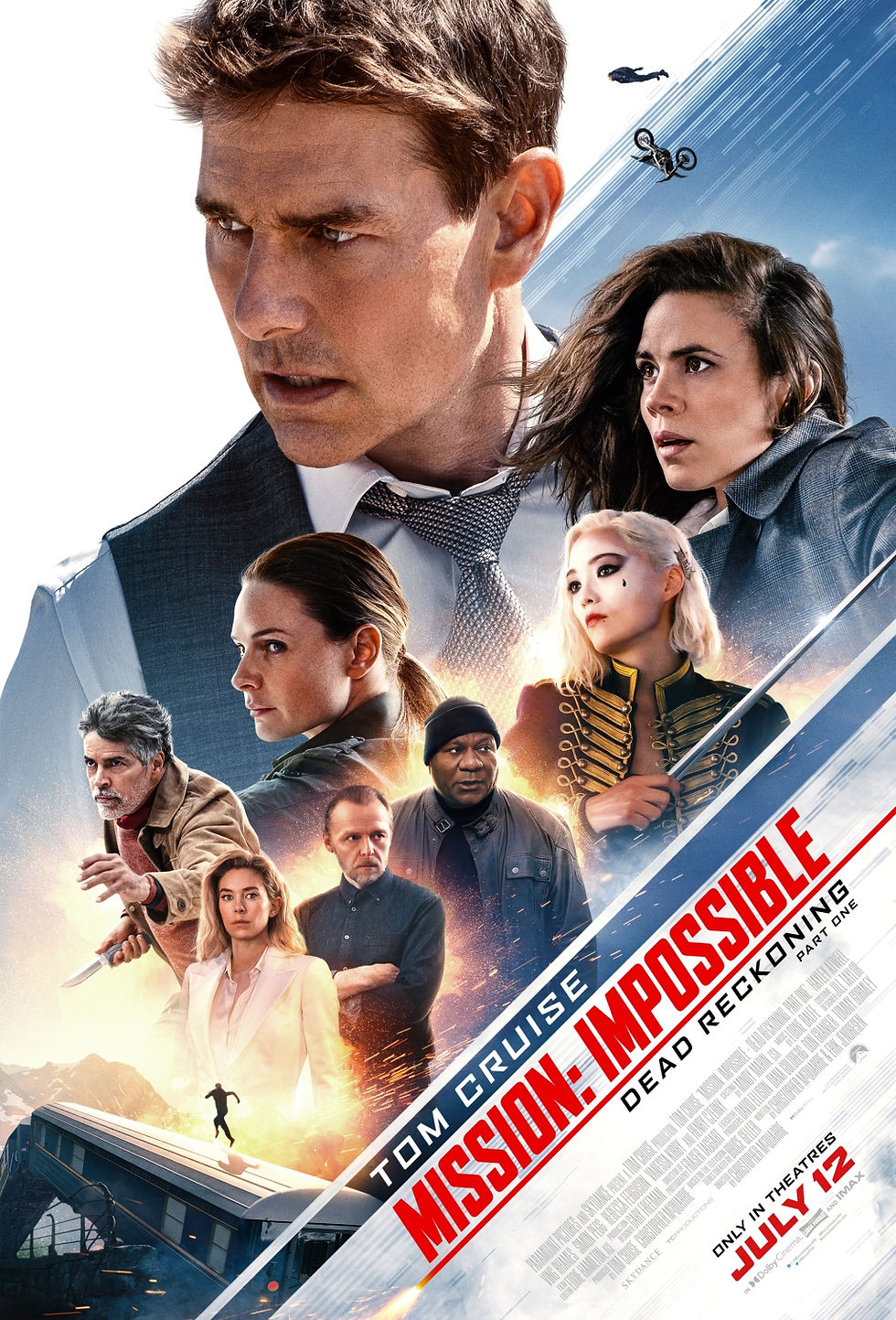Mission: Impossible Represents a Critical Moment For Cinema and Not Necessarily a Good One
- Daniel Grabowski
- Jul 11, 2023
- 3 min read
I went to see Mission: Impossible: Dead Reckoning: Part One ( I know, right?) last night and I came away from it with a really sour taste in my mouth. I'd grown up with Ethan Hunt and with all the problems cinema has been having as of late, I really wanted Tom Cruise to pull off another win for cinema.
After the mega-success of Top Gun Maverick, it was down to him again to, in his words, save cinema. Some big films have already tried and failed: The Flash was in and out of cinemas so fast you would think it was a marketing ploy (to the loss of $200 million) while Indiana Jones has already seen his numbers halve in his second week.
But I was sceptical.
Cruise and director Christopher McQuarrie all throughout the promotional tours have been talking about delivering for the fans and giving the audiences what they want and saving cinema in general. All this talk was of spectacle and particularly of Cruise putting him in harm's way for cinema . . . and no mention of story.
As a writer, that set alarm bells ringing. You can have all the best action in the world, but it's nothing more than bright colours and shapes without the investment in characters. But still, I had faith. James Gunn had just--for me, at least--put an end to the growing speculation of superhero fatigue settling in with the fantastic Guardians of the Galaxy Vol. 3.
And so I settled into my seat alongside my brother and my mother (both big M:I fans too) and willingly suspended my disbelief. I wasn't expecting the cinematic heights of the original. What I watched I wasn't expecting either.
In Mission: Impossible: Dead Reckoning: Part One: Unnecessary and Excessive Use of Subtitles, Ethan Hunt and his Impossible Mission Force are back at it as they seek to stop a rogue artificial intelligence from destroying the world for some reason (it really is that vague).
After a brilliant, tense and quite literally cold open, the film opens up into a series of scenes of exposition that loosely tie together a collection of escalating ways for Tom Cruise to put himself in harm's way. From deserts to airports to Venetian nightclubs to mountains and trains, when the action lets fly the film is at its very best.
But it is everything else that is a sad reflection of the state of modern cinema. Mission: Impossible used to be about tense espionage and twists you don't see coming. But gone are the days of John Voight and Philip Seymour Hoffman. Now, Mission: Impossible has become a predictable and generic action romp. The twists are as predictable as phases of the moon, the puzzles are written as if for children and everybody takes turns to reiterate what the others have just said, just in case it wasn't on the nose enough.
This isn't Mission: Impossible, this is the Fast and the Furious; padded out, dumbed down and full of enough explosions to justify splitting it up one film into two to get people paying twice. I'm fairly sure there's a line in there about family, too.
If this is what Tom Cruise thinks cinema is, I'm not surprised it's dying.
Check out the full post over on the Arbitrary Review and give the page a follow too!






Comments